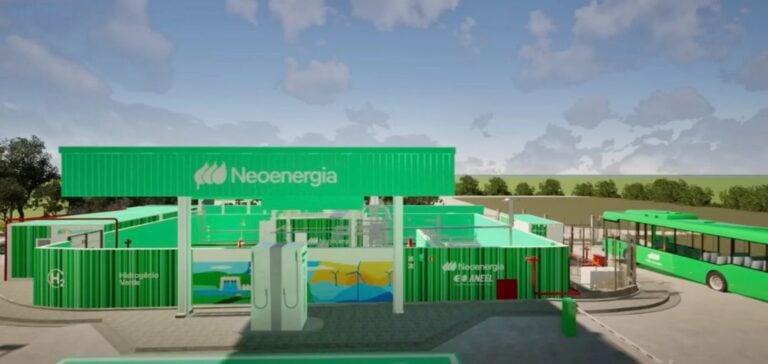Neoenergia has officially launched construction of a plant dedicated to producing green hydrogen (H2V) located in Taguatinga, in Brazil’s Federal District. The project, financed with more than 30 million Brazilian reais ($5.99mn), is part of the Research, Development, and Innovation Program (P&DI), supervised by the National Electric Energy Agency (ANEEL).
A strategic choice for deployment
The plant will be powered by a stand-alone photovoltaic facility and will supply fuel for both heavy and light vehicles. Its location near Brasília offers a dual advantage: political and economic centrality, as well as significant visibility for this innovative type of project. Its official opening is scheduled for October.
Eduardo Capelastegui, CEO of Neoenergia, stated that the initiative aims to promote innovative electrification technologies. “Brazil has undeniable competitive advantages, particularly abundant and affordable renewable energy,” he noted.
Inspiration from Spain
The Taguatinga facility follows a model developed by Neoenergia’s parent company, Iberdrola, which has operated two green hydrogen units in Spain since 2022, including one in Barcelona dedicated to urban mobility. However, the specificity of the Brazilian site lies in its capacity to distribute hydrogen at two distinct pressure levels, thus meeting the varied needs of vehicles such as buses and trucks.
The project comes as Brazil prepares to host COP30, the international climate conference. This event positions Neoenergia prominently in global discussions around new energies and their economic and industrial roles.
Objective of energy diversification
Green hydrogen constitutes a relevant energy alternative for industrial sectors and heavy transport that are difficult to electrify directly, such as steel, chemicals, and fertilizer production. With this perspective, the Taguatinga facility will also serve as an innovation centre, dedicated to exploring the potential of this energy vector.
The plant is part of Brazil’s broader industrial landscape, seeking to diversify its energy sources and strengthen the national infrastructure for low-emission mobility.






















